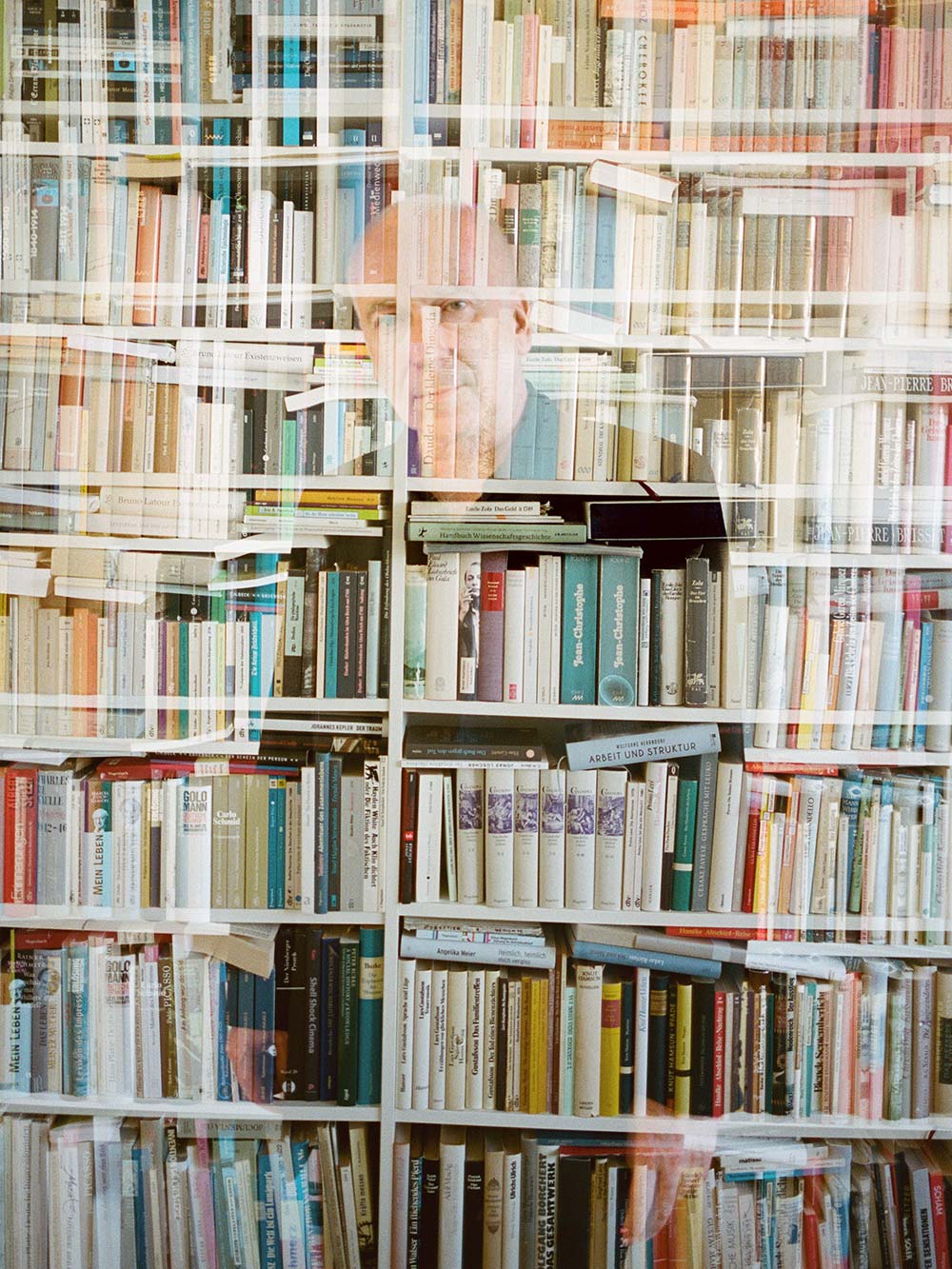Biography
Joseph Vogl was Professor of Modern German Literature, Cultural and Media Studies at Humboldt-Universität zu Berlin (2006-2023) and is Regular Visiting Professor at Princeton University (since 2007). He studied modern literature, philosophy, history, and linguistics in Munich and Paris (Promotion 1990, Habilitation 2000), and has taught and researched at various institutions including Ludwig-Maximilians-Universität in Munich, Maison des sciences de l’homme (Paris), the University of California, Berkeley, Indiana University Bloomington, IFK (Vienna), IKKM (Weimar). From 1998 to 2006 he was Professor for “Theory and History of Artificial Worlds” at the Department of Media Studies, Bauhaus-University Weimar. For his work he received several awards: Translation Prize for the Promotion of Franco-German Relations (1988), shortlist for the Leipzig Book Fair Prize 2015 in the category of non-fiction (“Der Souveränitätseffekt”, 2015), Günther-Anders-Prize for Critical Thinking (2022).
His research and teaching comprises literature from the 18th to the 20th century, media and aesthetics, cultural and political theory. Recent research focuses on the history of financial economy, literature and economics, and the “poetics of knowledge” – the study of the relationships and interactions between forms of knowledge and poetic or aesthetic figures. He was the director or principal investigator of a range of research projects including “Media History” (Research Training Group), “Esthetic Experience” (Collaborative Research Center), “The Knowledge of Literature” (international PhD-Net), TOPOI (Cluster of Excellence), “Small Forms in the History of Literature and Sciences” (Research Training Group), and “Matters of Activity: Image Space Material” (Cluster of Excellence).
Joseph Vogl published more than a hundred articles and book chapters, as well as numerous books and monographs. Among his most important written works are the monographs “Ort der Gewalt. Kafkas literarische Ethik” (1990); “Kalkül und Leidenschaft. Poetik des ökonomischen Menschen” (2002); “Über das Zaudern” (2007; “On Tarrying”, 2011); "Meteor. Versuch über das Schwebende" (2025). Besides his research in literature, cultural and media studies, he is well known for his intensive work on modern and present-day finance and economics, analyzing finance theories from the perspective of cultural history. This work culminated in his books “Das Gespenst des Kapitals” (2010; “The Specter of Capital”, 2014), “Der Souveränitätseffekt” (2015; “The Ascendancy of Finance”, 2017) and “Kapital und Ressentiment. Eine kurze Theorie der Gegenwart” (2021; “Capital and Ressentiment: A Brief Theory of the Present”, 2022), which received wide recognition in the fields of cultural studies as well as economics, and initiated a public debate. Further workings include translations from French to German (Deleuze, Guattari, Lévi-Strauss, Lyotard) and numerous interviews on TV with Alexander Kluge (see “Soll und Haben. Fernsehgespräche”, 2009; “Senkblei der Geschichten. Gespräche”, 2020).

Photo: © Christian Werner